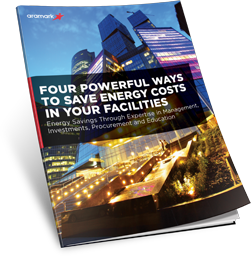
The possession and control of energy assets assume a rising part in legislative issues. At the public level, legislatures try to impact the sharing (circulation) of energy assets among different segments of society through estimating systems; or even who claims assets inside their nation. They may likewise look to impact the utilization of energy by people and organizations trying to handle ecological issues. The latest global Power to Choose political contention concerning energy assets is concerning the Iraq War. A few political investigators keep up that the secret justification for both the 1991 and 2003 conflicts can be followed to vital control of global energy assets. Others counter this investigation with the numbers connected with its financial aspects. As indicated by the last option gathering of investigators, the U.S. has spent about $336 billion in Iraq as contrasted and a foundation current worth of $25 billion every year spending plan for the whole U.S. oil import reliance
Energy strategy

Energy strategy is how a given substance (frequently legislative) has chosen to resolve issues of energy improvement including energy transformation, dissemination, and use along with the decrease of ozone-harming substance discharges to add to environmental change moderation. The properties of energy strategy might incorporate regulation, worldwide deals, motivators to speculation, rules for energy preservation, tax collection, and other public approach procedures. Energy is a central part of current economies. A working economy requires work and capital as well as energy, for assembling processes, transportation, correspondence, farming, and then some. Energy arranging is more nitty gritty than energy strategy. The energy strategy is firmly connected with the environmental change strategy because added up the energy area produces more ozone-harming substances than different areas.
Purposes
Admittance to energy is basic for fundamental social necessities, like lighting, warming, cooking, and medical services. Given the significance of energy, the cost of energy straightforwardly affects occupations, financial efficiency, business intensity, and the expense of labor and products. Regularly the predominant issue of the energy strategy is the gamble of supply-request crisscross (see: energy emergency). Current energy arrangements additionally address ecological issues (see: environmental change), especially testing as a result of the need to accommodate worldwide goals and global guidelines with homegrown necessities and regulations. The “human aspects” of energy use are of expanding interest to organizations, utilities, and policymakers. Utilizing the sociologies to acquire bits of knowledge about energy buyer conduct can assist policymakers in arriving at better conclusions about the expansive-based environment and energy choices. This could work with more productive energy use, environmentally friendly power commercialization, and fossil fuel byproduct decreases.
Security
Energy security is the convergence of public safety and the accessibility of regular assets for energy utilization. Admittance to modest energy has become vital for the working of present-day economies. Notwithstanding, the lopsided dissemination of energy supplies among nations has prompted huge weaknesses. Dangers to energy security incorporate the political shakiness of a few energy-creating nations, the control of energy supplies, the opposition over energy sources, assaults on supply framework, as well as mishaps, cataclysmic events, the subsidizing to unfamiliar tyrants, rising psychological warfare, and prevailing nations dependence to the unfamiliar oil supply. The restricted supplies, lopsided circulation, and increasing expenses of petroleum derivatives, like oil and gas, make a need to change to more maintainable energy sources within a reasonable time frame.
